Oct 28, 2025 10:47 AM
In Memoriam: Jack DeJohnette, 1942–2025
Jack DeJohnette, a bold and resourceful drummer and NEA Jazz Master who forged a unique vocabulary on the kit over his…
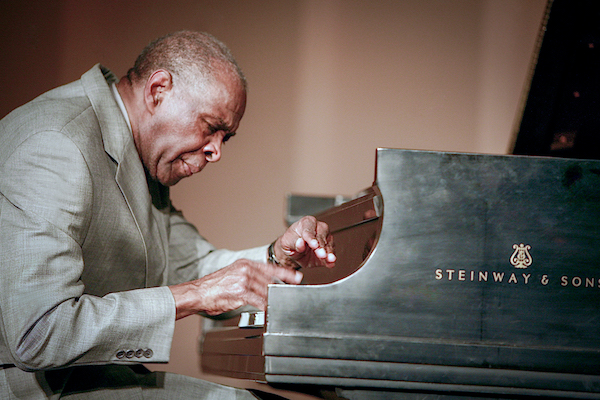
Muhal Richard Abrams (1930–2017)
(Photo: Michael Jackson)Pianist Muhal Richard Abrams—an NEA Jazz Master, inductee in the DownBeat Hall of Fame and one of the founders of the Association for the Advancement of Creative Musicians (AACM)—died at his home in New York City on Oct. 29. He was 87.
In honor of Abrams, below we have posted Ted Panken’s article “The Individual Principle,” which was published in the August 2010 issue of DownBeat.
The Individual Principle
“Interesting,” Muhal Richard Abrams said over the phone upon receiving the news of his election into the DownBeat Hall of Fame. After a pause, he said it again.
Arrangements were made to speak the following day, and, in conversation at the midtown Manhattan high-rise where he has lived since 1977, Abrams explained his laconic response to the honor, bestowed on the heels of his selection as a 2010 NEA Jazz Master.
“Well, why me?” he said. “There are so many worthy people. The only claim I make is that I am a pianist-composer.” He added: “I’m honored that people would want to honor me, and I have no objection, because people have a right to make the decisions they arrive at.”
It was noted that Abrams had communicated precisely the latter dictum 45 years ago at a series of meetings on Chicago’s South Side where the bylaws and aesthetic guideposts by which the Association for the Advancement of Creative Musicians (AACM) continues to operate were debated and established.
“Oh, in terms of individuals being free to be individuals, of course,” Abrams said. “It is a basic principle of human respect.”
Informed of Abrams’ reaction, George Lewis, the Case Professor of Music at Columbia University, who painstakingly traced the contents of these gatherings in A Power Stronger Than Itself: The AACM and American Experimental Music (University of Chicago Press), hollered a deep laugh. “‘Why me?’ Are you kidding?” Assured of the quote’s accuracy, Lewis, an AACM member since 1971, settled down. “That’s Muhal for you,” he said. “He’s not an ego guy. Originally, the book was supposed to be about him. He said, ‘I think it should be about the entire AACM.’”
Lewis then opined on his mentor’s “Why me?” query. “Muhal transcends genres, categories and the little dustups that often happen in the jazz world,” he said. “He’s his own person. He spent his life reaching out to many musical constituencies. So it makes a lot of sense to have him represent a new way of thinking about the whole idea of jazz. Muhal’s major lesson was that you’d better find your own path, and then, once you do, learn to be part of a group of people that exchange knowledge amongst each other. He provides support for an autodidact way of doing things.”
“I don’t characterize myself as a teacher,” Abrams remarked. “It’s my contention that one teaches oneself. Of course, you pick up information from people whose paths you cross. But I’m mainly self-taught—I found it more satisfying to do it that way.”
It is one of Abrams’ signal accomplishments to have been the prime mover in spawning a collaborative infrastructure within which such AACM-trained composer-instrumentalists as Lewis, Roscoe Mitchell, Joseph Jarman, Anthony Braxton, Henry Threadgill, Leo Smith, Amina Claudine Myers and himself could conceptualize and develop ideas. Another is his own singular corpus, as documented on some 30 recordings that present a world in which blues forms, post-bop themes with jagged intervals and experimental pieces in which improvising ensembles address text, sound and space coexist in the same breath with through-scored symphonic works, solo piano music, string, saxophone and brass quartets, and electronic music.
His arsenal also includes formidable pianistic skills, heard recently on “Dramaturns,” an improvised, transidiomatic duo with Lewis on Streaming (Pi)—it’s one of five performances on which Abrams, Lewis and Mitchell, grouped in duo and trio configurations, draw upon an enormous lexicon of sounds while navigating the open spaces from various angles.
“It’s a vintage collaboration,” Abrams said of the project. “Our collaborations date back to Chicago, and the respect that transpires between us on the stage, the respect for the improvised space that we use, is special. Of course, they’re virtuoso musicians, but I’m talking about silence and activity, when to play and when not to play, just from instinct and feeling and respect.”
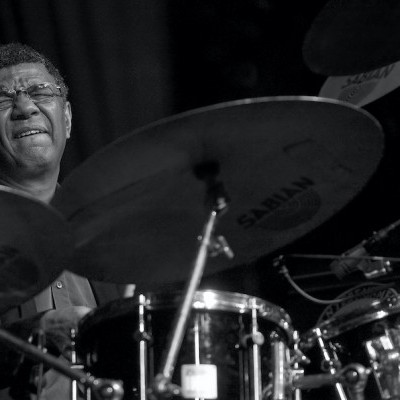
Jack DeJohnette boasted a musical resume that was as long as it was fearsome.
Oct 28, 2025 10:47 AM
Jack DeJohnette, a bold and resourceful drummer and NEA Jazz Master who forged a unique vocabulary on the kit over his…
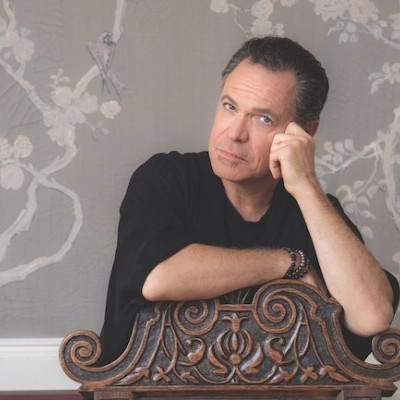
“Think of all the creative people I’m going to meet and a whole other way of thinking about music and a challenge of singing completely different material than I would have sung otherwise to my highest level in dedication to the moment,” Elling says about his Broadway run.
Sep 9, 2025 1:18 PM
Kurt Elling was back at home in Chicago, grabbing some family time in a late-June window between gigs. Sporting a smile…
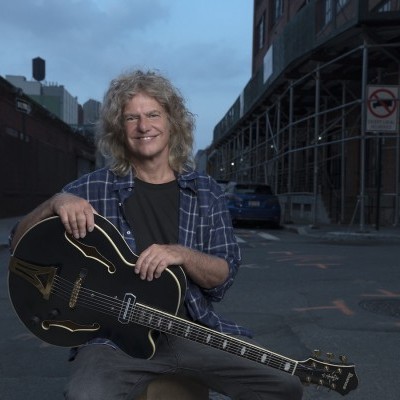
Pat Metheny will perform with his Side-Eye III ensemble at Big Ears 2026 in Knoxville, Tennessee, next March.
Sep 9, 2025 12:19 PM
Big Ears has announced the lineup for its 2026 festival, which will take place March 26–29 and include 250…
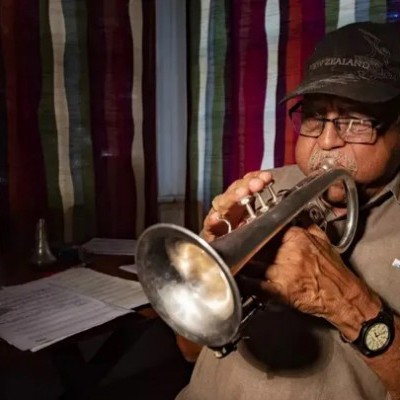
“[That’s] the thing of the beboppers,” Bradford said. “These guys were important for not only playing that wonderful music, but they knew a sort of social stance, you see?”
Sep 9, 2025 1:07 PM
It was a calm, balmy, near-perfect evening in Westwood, California, not far from UCLA, in the expansive courtyard at…
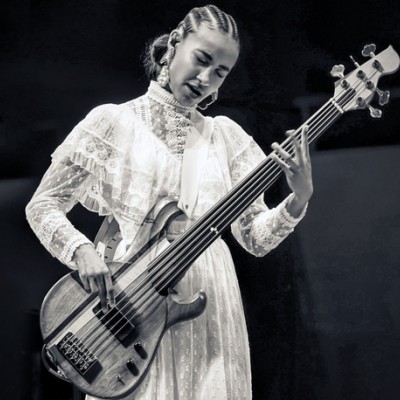
Esperanza Spalding closed an audacious Chicago Jazz Festival set with “Endangered Species.”
Sep 9, 2025 11:50 AM
The 45th Chicago Jazz Festival kicked off its headline events with two erudite individuals, Esperanza Spalding and…